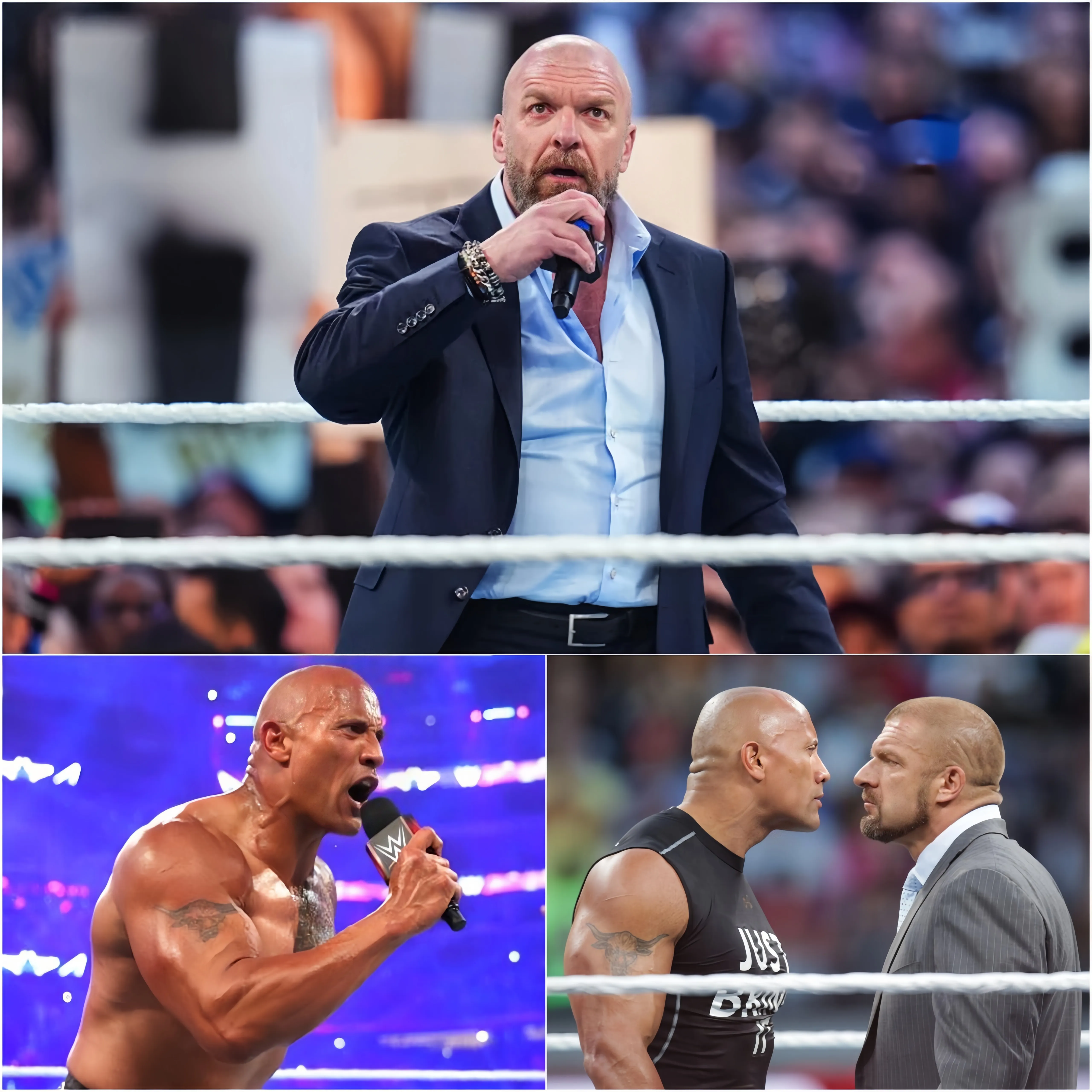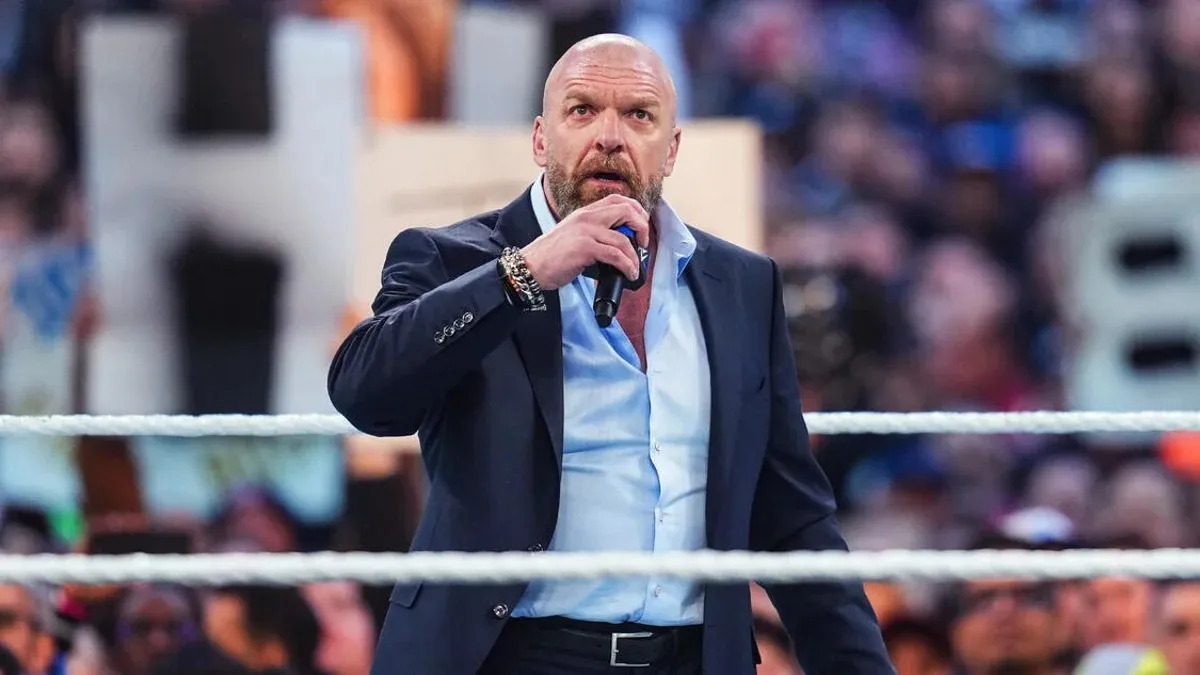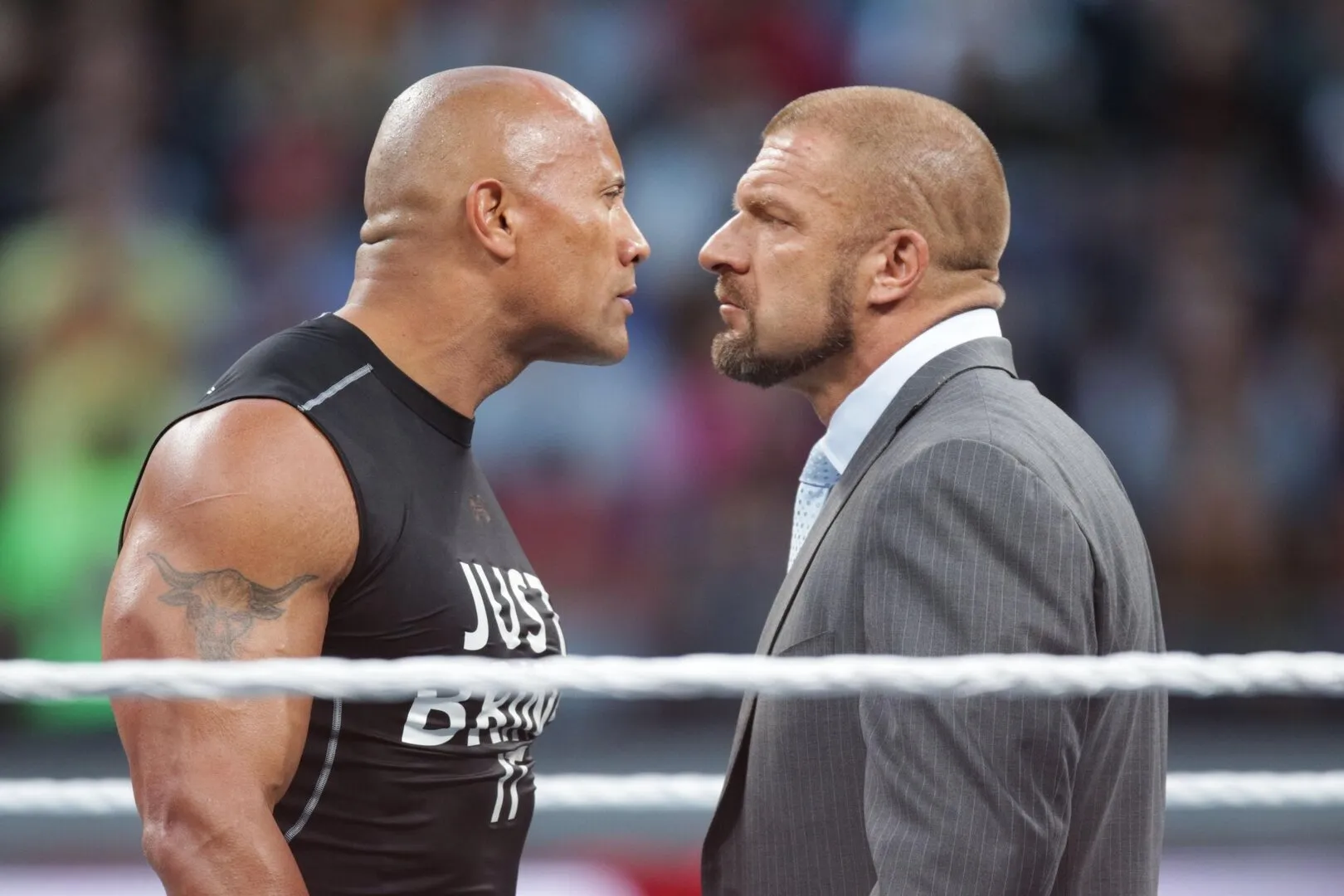In a recent revelation, WWE legend The Rock has expressed his displeasure with the way Triple H treated former WWE star Maven during a controversial match in 2003. The incident, which occurred on the March 10 episode of Monday Night Raw, has resurfaced following Maven’s candid statements in a YouTube interview. The revelation has not only reignited discussions about WWE’s backstage politics but has also highlighted The Rock’s advocacy for fairness in the wrestling industry.

Maven Huffman rose to prominence in WWE after winning the inaugural season of Tough Enough in 2001. With his natural charisma and athletic ability, Maven quickly became a fan favorite, sharing the ring with some of the biggest names in the industry. However, his encounter with Triple H on March 10, 2003 left fans and colleagues questioning the booking decisions behind the match.
At the time, Triple H was the reigning World Heavyweight Champion and a dominant force in WWE. Their match on Raw ended with Maven decisively defeated, a result so one-sided that it drew the ire of The Rock, one of WWE’s most influential figures.
According to Maven, The Rock was visibly upset after witnessing the unbalanced nature of the match. After taking Maven aside backstage, The Rock expressed his dissatisfaction with the way the match was structured and criticized Triple H for not giving Maven a fair chance to shine.
“After this match, The Rock pulled me aside and expressed his displeasure,” Maven revealed. “He didn’t like the way I was treated, the fact that I was squashed, and he said, ‘Business has to be done differently.’”

The Rock’s comments underlined his frustration with the treatment of young talent and his belief in the importance of promoting rising stars. Maven, who was still finding his footing in WWE, was grateful for The Rock’s support, even if he felt powerless to challenge the status quo at the time.
During their conversation, The Rock reportedly assured Maven that they would collaborate in the future to rectify the situation. “He said something to me,” Maven shared. “He said, ‘When I get back…we’ll do something together.’” However, despite The Rock’s best intentions, this promise never materialized, leaving Maven with mixed feelings about what could have been.
“The mere fact that he was on my side, supporting my career, meant a lot to me,” Maven admitted. “Even though it never happened, the gesture alone showed me how much The Rock cared about the business and the people in it.”
This incident sheds light on the contrasting leadership styles within WWE. While The Rock has often been praised for his mentorship and willingness to elevate emerging talents, Triple H’s reign as a top star has sometimes been criticized for overshadowing others. This dynamic has fueled speculation about underlying tensions between the two legends, further amplified by The Rock’s recent statement: “I WILL KICK HIS ASS OUT OF WWE.”
While this statement may have been made in jest or out of frustration, it reflects long-standing debates about fairness and opportunity in WWE. The Rock’s stance emphasizes the importance of creating a platform for all wrestlers to succeed, while Triple H’s approach has often been perceived as prioritizing his own legacy.
The Rock’s actions also highlight a larger conversation about WWE culture during the early 2000s. Backstage politics and the treatment of younger talent have long been contentious topics in the wrestling world. Maven’s story serves as a reminder of the challenges faced by rookies trying to navigate a landscape dominated by established stars.
While WWE has evolved significantly since 2003, incidents like these remain a crucial part of its history. They underscore the need to strike a balance between spotlighting veterans and providing opportunities for new talent to thrive.

For The Rock, this episode is another chapter in his legacy as an advocate for equity and inclusion in professional wrestling. His willingness to speak out on behalf of Maven demonstrates his commitment to the industry and its future.
As fans reflect on this behind-the-scenes drama, it’s clear that The Rock’s influence extends far beyond the ring. His support of Maven not only solidified his reputation as a leader, but also served as a catalyst for conversations about how wrestling promotions can better support their talents.
The Rock’s dissatisfaction with the treatment Maven received during his match against Triple H highlights the complexities of WWE’s backstage dynamics. While the promised collaboration between The Rock and Maven never came to fruition, the gesture remains a testament to The Rock’s character and leadership.
As the world of wrestling continues to evolve, stories like this serve as important reminders of the power of mentorship and advocacy. The Rock’s actions, both in and out of the ring, continue to inspire fans and performers alike, cementing his legacy as one of the most respected figures in WWE history.
